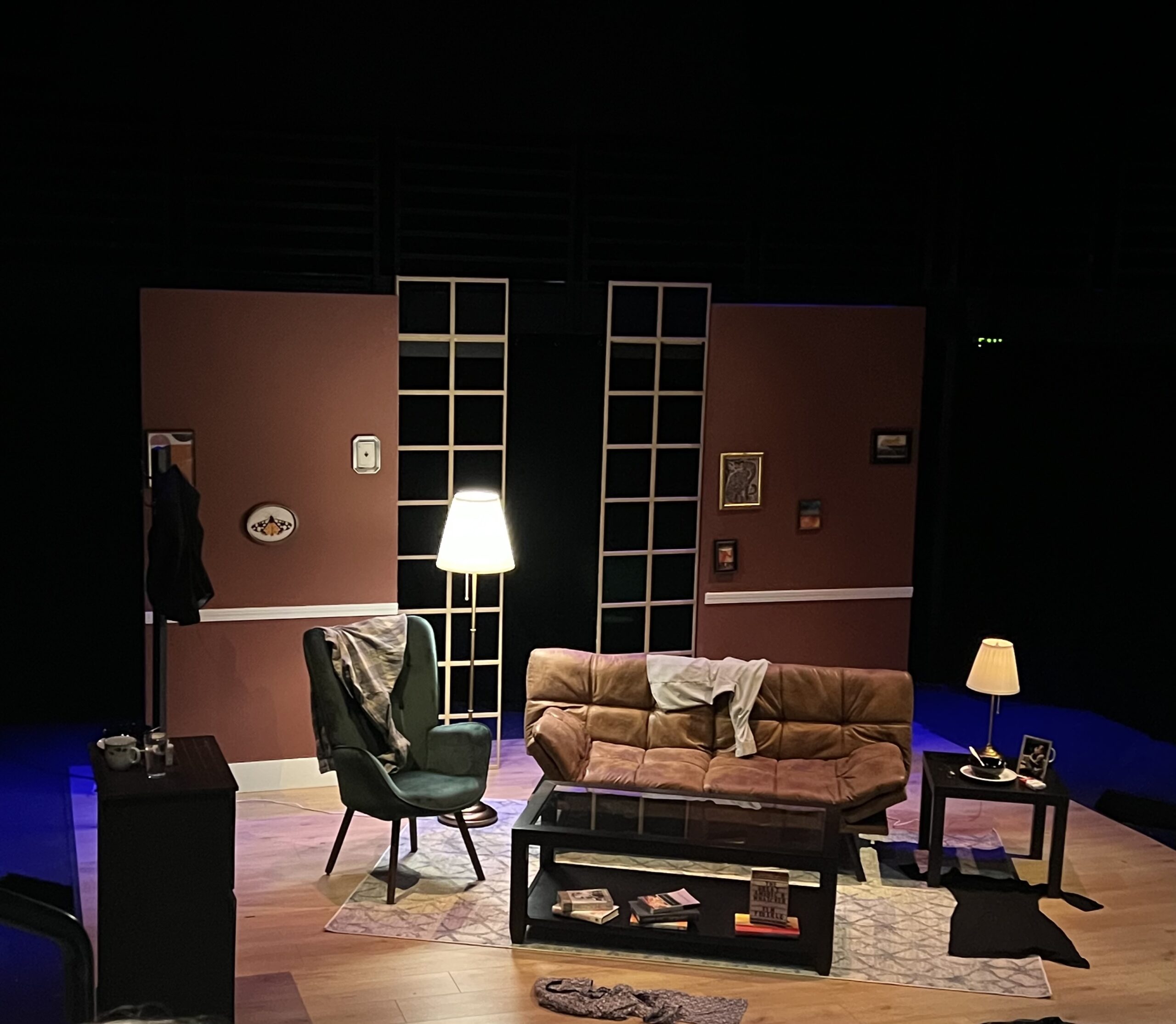Tony Dekker is having a hard time remembering the last time his band, the Great Lake Swimmers, played in Denver.
“I think we were here about ten years ago?” Dekker wonders aloud to the assembled mass of fans who have haphazardly congregated around the stage at Ophelia’s Electric Soapbox on a Wednesday night.
Dekker doesn’t mean to imply that Denver is somehow unmemorable but is merely showing the signs of a musician who recently celebrated the 15-year anniversary of the Great Lake Swimmers 2003 self-titled inaugural release.
Much has changed in the years following Dekker’s sparse, 10-track debut, which was recorded in an abandoned Grain Silo near the singer/songwriter’s hometown of Wainfleet, Ontario.
Despite their largely-recognized status as a band, Great Lake Swimmers have seen members ebb and flow over the years, with Dekker serving as the only constant member of the group. Guitarist and banjoist Erik Arnesen is the band’s second-longest tenured member, having contributed to the follow up to “Great Lake Swimmers,” 2005’s “Bodies and Minds.”
On their current tour, Dekker and Arnesen are accompanied by longtime bassist Bret Higgins, newly-added drummer Marshall Bureau and multi-instrumentalist Kelsey McNulty, who primarily plays keyboards and accordion.
This unusual structure has allowed the band to evolve and develop their music, which takes on a shimmering new form on “The Waves, the Wake,” released in August of 2018.
“I see Great Lake Swimmers as a singer/songwriter project that different players come in and out of; it’s not really a band but it is kind of a band,” said Dekker shortly before his set at Ophelia’s.
The group’s latest project offered a stark departure from their previous releases, featuring a wide array of instruments and arrangements that give the album a bright, lush ambiance. Dekker credits this to Toronto’s folk scene, a community in which the bandleader is now an established elder-statesman.
“I feel like the city of Toronto was kind of the backing band for the new record,” said Dekker of “The Waves, the Wake.” “It was that kind of thinking all along, like ‘This one could really use this instrument, who do we know who could do this?’”
By featuring a variety of contributors on this project, Dekker was able to incorporate different songwriting methods, furthering the album’s innovative sound. Whereas previous songs were primarily written on an acoustic guitar, the Canadian songwriter experimented with writing songs on different instruments and later paring back certain layers of the track to give the record a more intimate sound.
Like many of its predecessors, “The Waves, the Wake” was recorded in an unorthodox locale. Rather than previous haunts such as the aforementioned grain silo, or the Ontario cave used to record the group’s sixth album, “A Forest of Arms,” Dekker and co. opted to record their most recent effort in the 145-year-old Aeolian Hall in London, Ontario.
The venue, which is home to a historic church that was recently converted into a music school, was selected because of its acoustics.
“There’s something in the music—like a tone or a sonic layer that you can’t quite put your finger on, and it’s just like a layer of sound that adds a little bit of something extra, like the natural reverb, everything just sounds a little more real to me,” said Dekker of the band’s habit of recording its albums in nontraditional locations. “It’s hard to put your finger on.”
Dekker said that the writing comprised the bulk of the “heavy lifting” of the album cycle and added that it took him about six to eight months to compose the twelve songs that would become “The Waves, the Wake.”
Many of the songs on the album feature delicate instrumentation juxtaposed against rather cutting lyrics that underscore a number of key tenants the band holds dearly. Dekker mentioned the importance of clearly stating a message in his music, and said he felt that all Great Lake Swimmer albums can be connected through the theme of finding spirituality in nature.
“I think nature as a refuge is an important theme for thisrecord in particular,” said Dekker. “I think in the larger sense though there’s this narrative in all our records of like approaching a sort of spirituality in nature and in the natural world.”
Some songs on the record touch on other themes as well, such as “Alone But Not Alone,” which highlights the paradoxical disconnectivity brought on by the current technological age.
“We live in a society now where everyone is more connected than ever through our devices, but at the same time it seems like we are more disconected than ever,” said Dekker. “I think part of the sentiment of that song was feeling connected but disconnected at the same time and feeling like around people but also completely removed from being around people.”
The albums most bare track, “Visions of a Different World,” features a lonesome Dekker hoping for a more environmentally responsible human race The track is the only one on the album that doesn’t feature any backing instrumentation, just Dekker’s voice. This allows for the singer to clearly communicate his message and made for a stunning live performance that was backed by McNulty’s haunting keys.
“We have problems in society,” said Dekker of the track. “It’s a pretty scary time right now, especially in light of all the reports that are coming about global warming.”
“That song was more of a message of hope that we can still turn things around if we wake up a little more and be more conscious.”
As for his own vision for the future, Dekker said that environmental stewardship will be a key facet in forming a more responsible society.
“I think that trying to get the reins back from big corporations, especially big oil is a big task, but I think we need more of a balance between corporate rule and environmental care, true environmental stewardship,” said Dekker. “It’s a big vision, it’s a big dream, but somehow, if we could start a new way of thinking about things in small ways which maybe lead to big ways, then maybe it’s possible to save ourselves.”
Despite his band’s near-constant state of change, Dekker said he would like to continue with “The Waves, the Wake’s” unique sound.
“I feel like maybe we might have turned a corner with this new one,” said Dekker. “I just feel like we might have hit onto something and I’m really looking forward to exploring the concept even further.”











